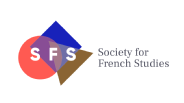Translating Philosophy and Theory - Style, Rhetoric and Concepts
One-day interdisciplinary conference at HRC Warwick
Saturday, 11th May 2019
Keynote speakers
Dr Lisa Foran, Lecturer in European Philosophy, Newcastle University, UK
Professor Andrew Benjamin, Kingston University London, UK / University of Technology, Sydney, Australia
conference registration is closed.
Final Programme TPT May 2019
We would like to thank all speakers and attendees for making this day a success. It has been a pleasure welcoming you at Warwick, hearing and discussions all papers.
Description:
Philosophical and theoretical writings challenge readers because they involve abstract and intellectual concepts. Moreover, authors of these texts can develop unique writing styles to address their readership. Argumentative structures and the discussion of concepts find expression in specific forms and shapes, which display the author’s style and help to create the effect of the text. This conference aims to discuss these difficulties that arise when it comes to translating philosophy and theory. Three aspects are the focus of this conference.
- Style: The author’s style in philosophical and theoretical texts can be distinctive and involve, for example, elaborate use of poetic or figurative language. Style can be a challenge for translation, especially given different approaches to the writing of philosophy across schools and languages. The style of the source text is therefore likely to inform the translator’s understanding, which may in turn significantly affect the translated text.
- Rhetoric: One might assume that philosophical and theoretical writings are detached from feelings and convince by pure logic and reasoning only. Rhetoric can be defined as the art of persuasion and speech that acts on the emotions. Debates on the role of rhetoric in philosophy go back as far as Antiquity with Plato, Aristotle and the sophists. Arguably, languages express emotive experiences and figurative references differently. This can result in problems such as omissions or misinterpretations in translated texts.
- Concepts: Some seemingly belong to everyday language, for example justice, labour, mind, nature, reason, truth and might suggest that there is little difficulty for translators to find an equivalent. Others, such as agencement, agency, Begriff, Dasein, dispositif, challenge translators insofar as these concepts can be somewhat ‘untranslatable’ (Cassin). There might be a tension in the translation of concepts between those who stress the language and those who wish to put them to work. For example, Foucault’s dispositif was initially translated in English with layout or deployment (amongst others) and has only later been considered an ‘untranslatable’ concept.
The aim of this one-day interdisciplinary conference is to explore the particular challenges that philosophical and theoretical texts pose for translation, whilst focussing on style and rhetoric as well as concepts writers create and/or use in different ways. Participants and the audience will bring together original knowledge, which has the potential to establish new connections between and within Translation Studies, Modern Languages, Philosophy and Theory.
Conference organised by Melissa Pawelski.
This event has received funding from:
Humanities Research Centre (HRC), University of Warwick

Society for French Studies

Centre for Research in Philosophy, Literature and The Arts, CRPLA, University of Warwick
We would like to thank all funders for their generous support.
